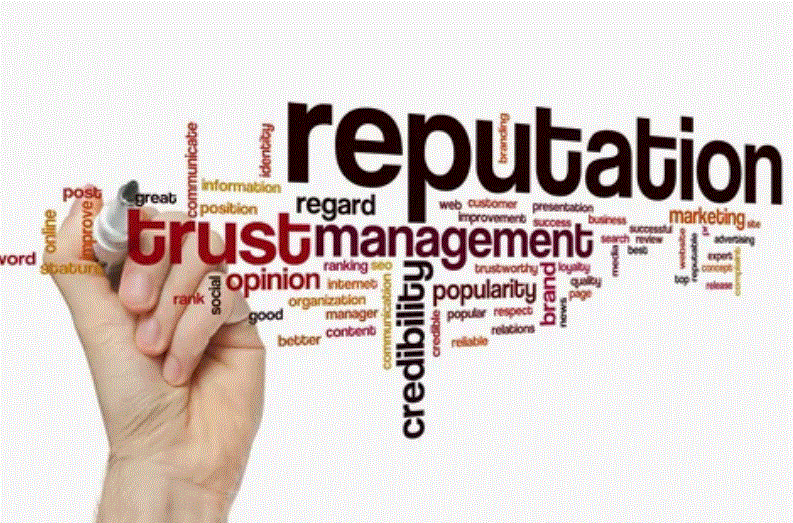Digital marketers have a lot in common with Joan Jett — they both live fast, break hearts, and put out incredible content. But they differ in one key area: unlike The Queen of Rock ‘n’ Roll, marketers have to give a damn about their reputation.
In recent years, managing online reputations has become critical for businesses. Let’s dive into what reputation management is, why it matters, and the most impactful steps you can take to improve your brand’s image through reputation marketing agency Temecula.
What Is Online Reputation Management?
Online reputation management (ORM) involves strategies marketers use to shape the public’s perception of a business. When done correctly, ORM builds trust and positively influences buying decisions. Key facets of ORM include review management, social media monitoring, and online community engagement.
Reputation Management vs. Brand Safety
While related, reputation management and brand safety are distinct concepts. Reputation management oversees the public’s perception of a business or organization. Brand safety, on the other hand, involves ensuring your brand name and ads appear in appropriate and non-offensive channels. This includes avoiding placements alongside hate speech, adult content, or other unsuitable material.
Why Is Managing Your Business’s Online Reputation Necessary?
Your online reputation serves as your first impression, which is notoriously difficult to change. Managing your online reputation ensures your business appears credible and trustworthy in every consumer interaction. Consider these statistics: consumers read an average of 10 online reviews before trusting a business, and 79% of people trust online reviews as much as personal recommendations. If your brand image doesn’t meet expectations the first time, people are unlikely to give you a second chance.
Top 10 Tips for Online Reputation Management
Managing your online reputation requires a variety of tactics and continuous optimization. Here are our top tips:
Audit Your Current Reviews
Before managing your reputation, understand it. Audit your online reviews across major platforms like Google, Yelp, TripAdvisor, and Facebook. Ensure your business information is up-to-date and analyze what customers are saying. Identify positive reviews to thank customers for and negative reviews to respond to. This audit will help you form a plan to improve your reputation.
Implement an Online Review Strategy
Create a system for responding to reviews on all platforms. Positive reviews are easier to respond to—thank the customer and highlight the positive aspects they mentioned. For negative reviews, acknowledge the issue, apologize, and avoid getting defensive. Moving the conversation offline can also be beneficial. A prompt response is crucial; 53.3% of customers expect businesses to reply to their reviews within 7 days.
Encourage Satisfied Customers to Leave Reviews
Often, review sites are where frustrated customers vent. Encourage satisfied customers to leave reviews by training staff to ask for reviews, offering incentives like discounts or rewards, and sending email requests for reviews soon after purchase.
Monitor Your Brand’s Social Media Channels
Social media is another avenue for customer feedback. Monitor all channels and respond to comments promptly. Thank customers for positive comments and address negative ones with a genuine apology, asking to discuss further offline. Quick responses can prevent negative posts from going viral.
Encourage Brand Advocacy from Within Your Organization
Happy employees are great brand advocates. Encourage them to share their positive experiences on social media and through word of mouth. Incentivizing participation can also help.
Own Page One of the Search Results for Branded Terms
Control the narrative by owning the first page of search results for branded terms. Use keyword research to identify common branded searches and create pages for those terms. Regular blogging can also improve search rankings and demonstrate expertise, building a loyal following and positive reputation.
Create Strong Brand Values and Live by Them
Consistency in messaging and actions builds trust. Demonstrate your values through your online presence and actions. For instance, Patagonia’s founder’s donation to fight climate change significantly boosted their reputation.
Develop a Public Relations Strategy Aligned with Your Brand Values
Authenticity is key in public relations. Promote messages that align with your core values and actively monitor media mentions to quickly respond to any PR crises.
Use Call Center Conversations to Prevent Negative Reviews
Utilize conversation intelligence platforms to analyze contact center conversations and identify customer experience issues. Quickly address unresolved issues to prevent negative reviews. For example, Spectrum Retirement used AI to manage concerns during the COVID-19 pandemic, turning potential negative reviews into positive ones.
Listen to Your Customers and Make Genuine Improvements
Managing your reputation isn’t about hiding flaws but genuinely responding to customer concerns. Follow up on negative reviews to understand the root cause and take necessary actions to resolve issues. This proactive approach can significantly enhance your reputation.
Conclusion
Effective online reputation management involves understanding and shaping public perception through strategic actions. By auditing reviews, engaging with customers, encouraging positive feedback, and living by strong brand values, businesses can build and maintain a positive online reputation through a marketing agency Oceanside. These efforts not only enhance credibility but also drive customer trust and loyalty, ultimately contributing to business success.

